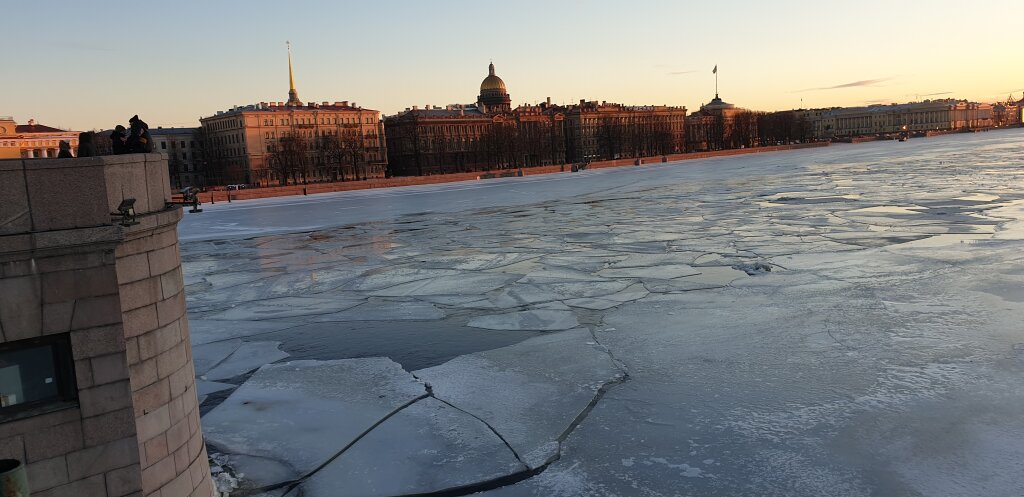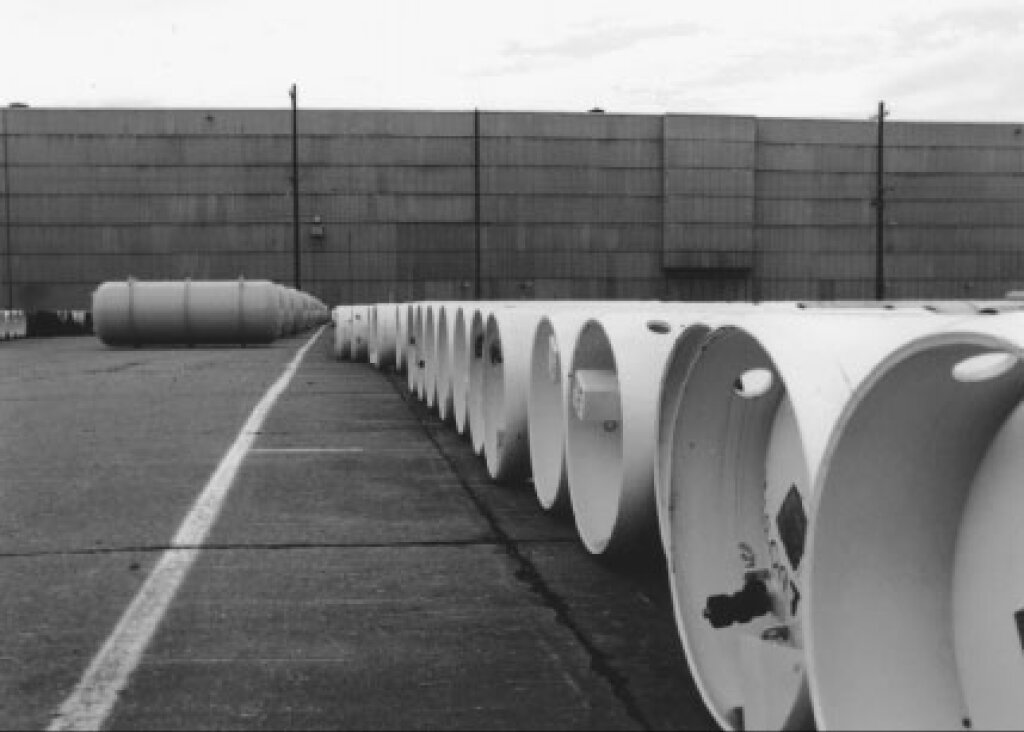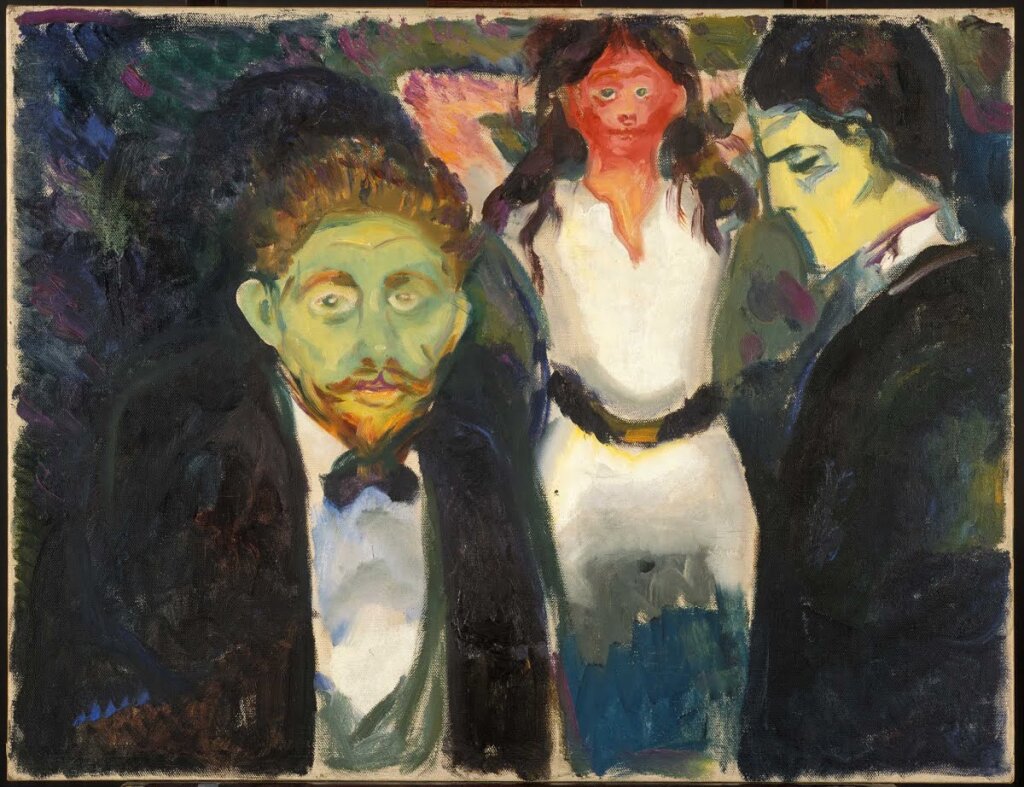The Jordan Center stands with all the people of Ukraine, Russia, and the rest of the world who oppose the Russian invasion of Ukraine. See our statement here.
Amanda Murphy is an Assistant Professor of Russian at Nazarbayev University in Astana, Kazakhstan. She spent February 2022 on a research trip in St. Petersburg, Russia.
Cannons rang out and explosions shook the building, interrupting the singing onstage. What was going on? Was the war really here? No. It was just the salute to commemorate February 23 and the Defenders of the Fatherland. No worries.
No one was shelling the Hermitage Theater, yet the cannonfire was fitting. Indeed, we were watching a piece by Piotr Tchaikovsky, who had shocked audiences in 1880 by being the first to use this piece of artillery in the 1812 Overture. Tonight’s performance was his rarely-staged opera Cherevichki (Ukrainian for slippers), which is based on Gogol’s 1832 tale “Christmas Eve.” The tale's protagonist, the blacksmith Vakula, tricks the devil into taking him on a wondrous journey to Catherine the Great in search of a pair of slippers that would win the heart of the haughty Oksana.
The performance itself went smoothly, but at the end, the director, Yuri Aleksandrov, came onstage to make a speech. “Russians and Ukrainians are one people [odin narod],” he said, echoing the predominant message of Russian propaganda at the time. This apparently benign phrasing masks Russia's ongoing imperial effort to erase Ukrainian sovereignty. The corollary, of course, is that if Russians and Ukrainians are "one people," then Ukrainians are just Russians of a lower order.
Though I had gone to Russia specifically to study the image of Catherine the Great in Russian culture, the director's speech forced me to consider the staging of Tchaikovsky's opera in a new light. Catherine had been a taboo topic under Nicholas I, when Gogol wrote his tale, but under his successors, Alexander II and III, she was in high fashion. In 1874, Tchaikovsky won the government-sponsored competition for the best operatic adaptation of "Christmas Eve," which he later reworked in 1885. What had made Catherine so popular during that period? Did her general policy of imperial expansionism win special favor, or her abolition of Ukrainian autonomy in particular? Why had Tchaikovsky found it necessary to turn Gogol's Ukrainian tale into a celebration of Russianness? Was this staging at the Hermitage Theater, which had premiered in December 2022, also ordered by the government?
Brushing these thoughts aside, I headed out into the cold with a friend to enjoy what would be our last magical Petersburg evening, not suspecting—as we strolled across Palace Square, filled with twinkling lights, horse-drawn carriages offering romantic rides, and a rock band’s impromptu performance—that, a few hours later, everything would change.
[gallery type="slideshow" size="medium" columns="1" ids="8310,8311,8314,8309,8312,8313"]
In early February 2022, as Russia was steadily increasing its military presence on the border with Ukraine, I arrived to begin a long-postponed 6-month research stint. My hope was that US intelligence was wrong, just as it had been on the Y2K scare during my very first trip in Russia in 1999-2000. This time, getting to Russia had been its own protracted adventure: I teach literature at Nazarbayev University in Kazakhstan, and the early 2022 attempt to overthrow the government, and subsequent lockdown, had significantly delayed my trip. And so, in February, I arrived feeling—naively, in retrospect—that, now that I had finally made it, nothing else could go wrong.
My intention was to spend my days in libraries and archives, and my evenings in museums and theaters, as I had during my last several visits to Russia in 2019. Unfortunately, my arrival coincided not only with Russia's warlike massing of troops, but also with a cresting COVID wave. Everyone in the city seemed to be either sick, or without a mask, or both. COVID closed the city archives for several weeks. I found solace in the reading rooms of the National Library of Russia and Russian State Historical Archives, which kept their doors open. But everything felt wrong: although the pandemic had renewed xenophobia worldwide, this was something more.
As a condition of my visa support, I was required to live with a host, despite the fact that I am over 40 and have led groups traveling to Russia. To add to the charm of this arrangement, my "host mother" was only 5 years my senior, and, though she tried to be welcoming, our conversations were stilted. Even more awkwardly, she enjoyed watching the news. My need for human contact (and uncomfortable fascination) resulted in many hours of exposure to the absurd alternate reality presented by Russian state media.
Not only did I watch Putin meet with various dignitaries at his extraordinarily long table, I was also treated to slanted coverage of what new shows called the “alleged military buildup" on the Ukrainian border—the same buildup that had placed the whole world on high alert. That Russia was massing its troops was not the issue; what mattered, per the television, was the West's nefarious scheme to make it appear as though Russia was about to attack Ukraine. Over and over, news commentators claimed that Russia would never attack Ukraine because, of course, “Russians and Ukrainians are one people [odin narod].” Strangely, though I knew these reports were false, I so desperately didn't want to believe that war would actually break out that the news helped me to tamp down my growing sense of alarm.
Perhaps the most masterful instance of gaslighting came just a few days before the invasion, when the big news was a program to bring refugees to Russia from the so-called "People's Republics" of Donetsk and Luhansk. The news moved away from denials of aggression and focused on poor women and children leaving their homes to flee from "Ukrainian aggressors." Reports were replete with descriptions of governmental subsidies, living quarters, and hospitable Russians welcoming these poor refugees into their homes. The media had turned the story 180 degrees, framing Russians as protectors rather than aggressors. This sudden change in discourse was destabilizing. What could be the point of these stories about people who had been living in a battle zone for the past eight years? I felt sure that this story was a sign, but of what, I wasn’t yet sure. Was the takeaway that the invasion was inevitable, or the opposite? To an outside observer, these stories presented the possibility of pretending that everything was OK, when it was obviously not.



